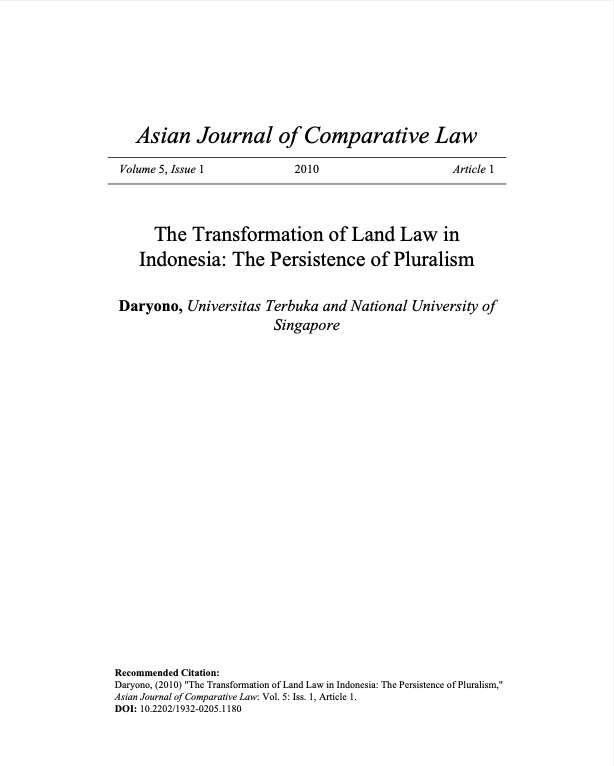The Transformation of Land Law in Indonesia: The Persistence of Pluralism
Transforming a pluralistic tenure system into unified statutory rights has been a major objective of the development of property law in many developing countries. Many law and development scholars have assumed that unified land rights are a pre-condition to development and that a pluralistic tenure land system is a major source of uncertainty and insecurity. This article challenges this commonly held assumption by way of a case study of Indonesia's effort to unify the laws governing land.












